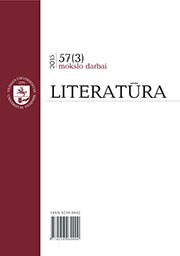PILIETINĖ TAPATYBĖ IR PAMALDUMAS PLATONO ĮSTATYMUOSE
CIVIC IDENTITY AND PIETY IN PLATOʼS LAWS
Author(s): Vilius BartninkasSubject(s): Language and Literature Studies, Law, Constitution, Jurisprudence, Ethics / Practical Philosophy, Civil Society, Ancient Philosphy, Philosophy of Religion, Philosophy of Law, Theory of Literature
Published by: Vilniaus Universiteto Leidykla
Keywords: Platoʼs Laws; piety; civic identity; foundational narratives; comprehensive virtue
Summary/Abstract: This paper explores the meaning of religion and piety in Plato’s Laws. A discussion of contemporary scholarship shows that currently there is a trend to emphasize ethical innovations in Plato’s later thought without discussing its relation to religion. However, an analysis of the key foundational narratives of Magnesia reveals that religion has a substantial role in the dialogue. Plato rethinks the meaning of piety in his last dialogue. On the one hand, he criticizes the traditional Greek religiosity by providing a way to reconcile the performative and the rational devotion to gods. On the other hand, piety is incorporated in ethical theory as a key structural component. Thus, piety emerges as one of the most fundamental ideas in the political project of Magnesia.
Journal: Literatūra
- Issue Year: 57/2015
- Issue No: 3
- Page Range: 7-15
- Page Count: 9
- Language: Lithuanian

